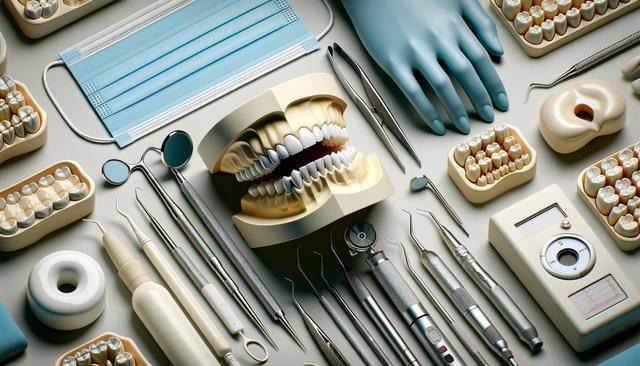Growing Interest in Dental Hygiene Careers
In recent years, more people are exploring careers in dental hygiene due to a combination of job stability, strong income potential, and the opportunity to contribute to public health. The role of a dental hygienist has evolved, becoming more integral to preventive care and overall patient wellness. This shift has made the profession attractive to individuals interested in healthcare but seeking a more focused path than general dentistry or nursing. Educational programs that offer a mix of classroom instruction and hands-on clinical training are particularly appealing, as they prepare students with both theoretical knowledge and practical experience.
Job market trends also play a significant role in this increasing interest. The demand for dental hygienists is expected to grow steadily, driven by an aging population and a heightened emphasis on oral health. Many dental offices and clinics now rely heavily on dental hygienists to provide essential services such as cleanings, patient education, and preliminary assessments. This growing need is encouraging more students to consider dental hygiene as a viable and rewarding career path.
What Dental Hygienists Actually Do
Dental hygienists perform a variety of tasks that are crucial to maintaining oral health and preventing dental diseases. Their responsibilities go beyond just cleaning teeth. They are trained to:
- Conduct oral health assessments and examine patients for signs of oral diseases
- Apply preventive materials like sealants and fluoride treatments
- Educate patients about proper brushing, flossing, and other oral care habits
- Maintain patient dental records and collaborate with dentists on care plans
The scope of work may vary depending on the state or country, but in many settings, dental hygienists play a frontline role in patient care. Their ability to identify early signs of conditions such as gum disease or oral cancers makes them important contributors in any dental team. Their training in both science and communication allows them to interact effectively with patients, making a real difference in people’s lives through education and prevention.
What to Expect From a Dental Hygienist Program
Dental hygiene programs are structured to provide a balance of academic knowledge and clinical experience. Typically, these programs take around two to three years to complete and are offered by community colleges, technical schools, and universities. Coursework includes subjects such as anatomy, physiology, radiography, periodontology, and dental materials. In addition to classroom learning, students spend significant time in clinical settings where they apply their skills under the supervision of licensed professionals.
Some of the key components of a dental hygienist curriculum include:
- Hands-on training in dental clinics with real patients
- Instruction in infection control and safety protocols
- Use of dental instruments and diagnostic tools
- Ethics and legal aspects of dental practice
Graduates must pass licensure exams in most regions before they can begin practicing. These exams test both theoretical knowledge and clinical competence, ensuring that dental hygienists are well-prepared to enter the workforce with confidence and skill.
Career Opportunities and Work Environments
Dental hygienists can work in a variety of settings beyond traditional dental offices. Their training allows them to be flexible and adaptable to different roles within the healthcare system. Common work environments include:
- Private dental practices
- Public health clinics
- School-based dental programs
- Long-term care facilities
- Research and academic institutions
With additional education and experience, some dental hygienists go on to specialize in areas such as pediatric dentistry, periodontics, or public health. Others may choose to pursue teaching roles or work in product development and sales for dental supply companies. The diversity of career paths available makes the profession appealing to those who value variety and long-term growth potential in their careers.
Furthermore, many dental hygienists enjoy flexible work schedules, which can be beneficial for those balancing work with family or other commitments. Part-time and full-time opportunities are widely available, offering professionals the chance to tailor their careers to their lifestyle needs.
Why Now Is a Great Time to Start
There are several reasons why now is an opportune moment to consider enrolling in a dental hygienist program. The healthcare industry continues to prioritize preventive care, and oral health plays a significant role in overall well-being. Dental hygienists are uniquely positioned to meet this demand, offering services that help reduce the need for more invasive treatments down the line.
In addition, advances in dental technology and techniques have expanded the tools and procedures available to hygienists, making the job more engaging and dynamic. Modern training programs are designed to keep students up to date with these developments, ensuring they are ready to work in contemporary dental settings.
For those interested in a stable, people-focused career with opportunities for impact and growth, dental hygiene represents a solid choice. With programs that blend rigorous academic study with real-world clinical experience, students are well-equipped to enter a field that is both professionally and personally rewarding.
Conclusion: A Practical and Rewarding Career Path
Choosing to become a dental hygienist offers a compelling mix of job security, community impact, and personal fulfillment. As the need for preventive dental care continues to grow, so too does the importance of qualified professionals in this field. Dental hygienist programs provide a structured and supportive pathway into healthcare, combining scientific education with hands-on experience that prepares graduates for real-world success.
Whether you’re a recent high school graduate exploring career options or a professional considering a shift into healthcare, dental hygiene presents a practical and meaningful opportunity. With a variety of work environments, flexible scheduling, and a growing job market, it’s no surprise more people are looking into dental hygiene programs as a smart and sustainable career choice.




Leave a Reply